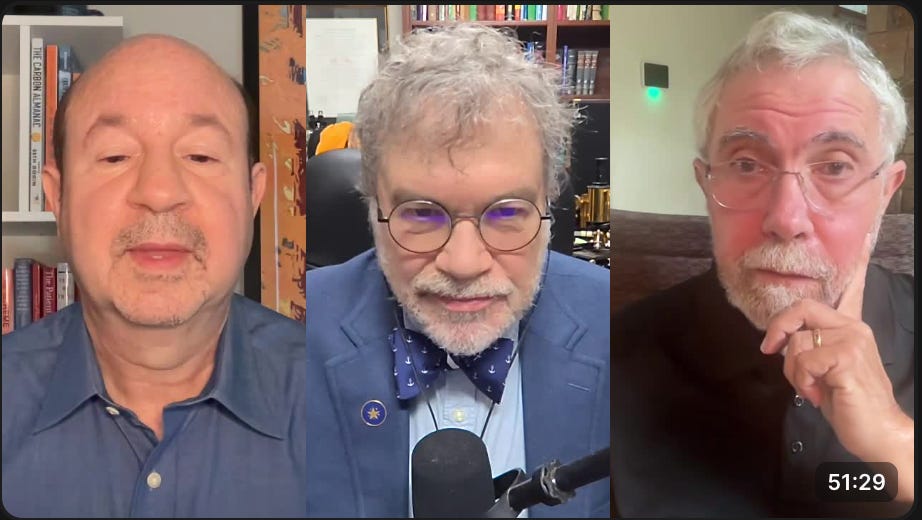Summary of the Interview with Peter Hotez and Michael Mann on Their New Book “Science Under Siege”
In a conversation with Paul Krugman, Peter Hotez and Michael Mann discuss their forthcoming book “Science Under Siege,” which delves into the growing assault on science. Hotez, a pediatric vaccine researcher, and Mann, a climatologist, share their personal experiences with anti-science attacks and the motivations behind them.
Key Points:
-
Personal Attacks and Motivation:
- Both authors highlight the coordinated attacks they’ve faced—Hotez in the vaccine arena and Mann in climate science—emphasizing how these movements often share common origins and players.
-
Overlap of Anti-Science Movements:
- The authors note that many of the tactics and financial backers for anti-vaccine and anti-climate initiatives overlap. They describe a Venn diagram of anti-science efforts that reveals significant connections.
-
Political and Financial Drivers:
- Hotez explains that the anti-vaccine movement has become political, moving from initial claims about vaccines causing autism to broader discussions about “medical freedom.” He cites significant funding from groups like the Texas Tea Party for anti-vaccine political agendas.
- Mann points out that climate change denial aligns with financial interests, particularly from the fossil fuel industry, which sees public health measures during pandemics as threats to their profits.
-
Consequences of Anti-Science Disinformation:
- Both scientists warn that the rise of anti-science has dire implications for public health and environmental policy, leading to increased vulnerability to pandemics and climate crises.
-
Call to Action:
- Their book emphasizes the urgency of combating disinformation, advocating for greater visibility of scientists in public discourse to counter anti-science narratives.
-
The Bigger Picture:
- Hotez and Mann argue that there is an existential threat posed by the anti-science movement, which undermines humanity’s ability to address critical issues like pandemics and climate change.
Conclusion:
The interview concludes with a somber outlook on the future of science and public policy, as the authors stress the importance of reclaiming political discourse and ensuring that scientific expertise remains a cornerstone of decision-making in democracy. They advise concerned citizens to educate themselves on the organized anti-science campaign and promote scientific visibility and engagement.



